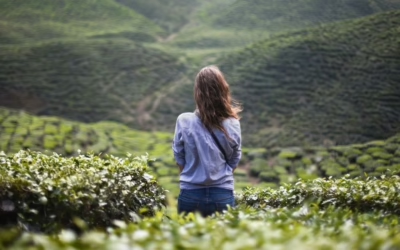The Evolution of Travel
Traveling in the modern age has changed drastically. Years ago, travel was not accessible to the average person. It was seen as a luxury that not everyone could afford. As the world has continuously developed through technology, we’ve seen a spike in the number of individuals who travel every year and the way they do it.
With the rapid growth of airline popularity, anyone with a little extra money can book a flight right from their smartphone. This ease and accessibility has caused the world of travel to expand at extreme rates. In an Our World in Data article by Max Roser, we can see just how many tourists are arriving in different countries throughout time.
“The United Nations World Tourism Organization (UNWTO) estimates that internationally there were just 25 million tourist arrivals in 1950. 68 years later this number has increased to 1.4 billion international arrivals per year. This is a 56-fold increase.”
Max Roser
While the United States is not solely a country reliant on its tourism for economic success, it is clear through this data that traveling has become much more mainstream.
Environmental Impact of Increased Travel
It’s a wonderful thing to see that more and more people have the opportunity to discover the many amazing sites our world has to offer. There is an endless amount of adventures to be had and places to explore. Unfortunately, most human activity does not come without a cost. Essentially every type of commuting has a negative impact on the environment. Any type of motor vehicle emits harmful gasses into the air which pollutes the atmosphere. While airplanes are much more efficient, they are also very damaging.
Aviation emissions play a major role in climate change. Airplanes burn fossil fuels, which release CO2, but they also produce other pollutants like nitrogen oxides (NOx) and create vapor trails and clouds at high altitudes. These non-CO2 emissions have a strong warming effect, contributing twice as much to global warming as the CO2 from aircraft. In 2018, these non-CO2 impacts accounted for two-thirds of aviation’s total climate effect.
More and more, humans are taking advantage of the convenience and affordability we see in the travel industry and are failing to recognize the harm we are causing the planet in the meantime.
The Impact of COVID-19 on Travel
After enduring the drastic events of Covid-19, many people felt eager to travel again once it was deemed safe. When the virus initially hit, the travel industry was among one of the hardest hit. Obviously, it was impossible to go to most places abroad, and even instances of emergency were rarely made exceptions for. Now, travel is considered to be safe again. At this time, many of the previous restrictions on travel–even the requirement of proof of vaccination or a negative Covid test–are being lifted, as well. Because of this, the amount of people traveling again is bound to increase.

Embracing Mindful Travel
Having the ability to prioritize travel again feels like extreme fortune after what we have all gone through because of the pandemic. However, if we want to care for our planet and those around us in the best way possible, we should take time in our planning to ensure we are being as mindful as we can. This concept of mindful travel encourages us to appreciate and be considerate of the environments we visit.
Hopefully, we have all developed a sense of gratitude for the smaller things in life and can appreciate that we have the ability to move around and experience the beauty of the world. There are different ways we can travel more mindfully and try to be considerate of the world around us. One way to do this is to consider even the smallest journeys as ‘traveling.’
For example, perhaps we take our dog on a walk every day. Instead of seeing this as a chore we must complete, we can choose to consider this activity as going from one destination to another. Along the way, we can absorb and appreciate the environment around us, while spending some time with a pet we love.
Perhaps we take annual or multi-annual trips to see our family. While this might not typically be considered the most glamorous of vacations, it’s certainly something valuable and special. If we are able to slow down and take that time to be with our families, taking in their presence and enjoying the smaller moments with them, we might eventually feel that this time is more special than any expensive trip we could ever take. Beginning to adapt to this mindset can help us to appreciate even the most minute details of life. In turn, our travel experiences need not be as grand or elaborate, but we can certainly still appreciate the world in a similar and more intimate way.
By adopting mindful travel practices, we can ensure that our journeys are enriching and sustainable, allowing us to enjoy the beauty of our planet while minimizing our impact on the environment.


